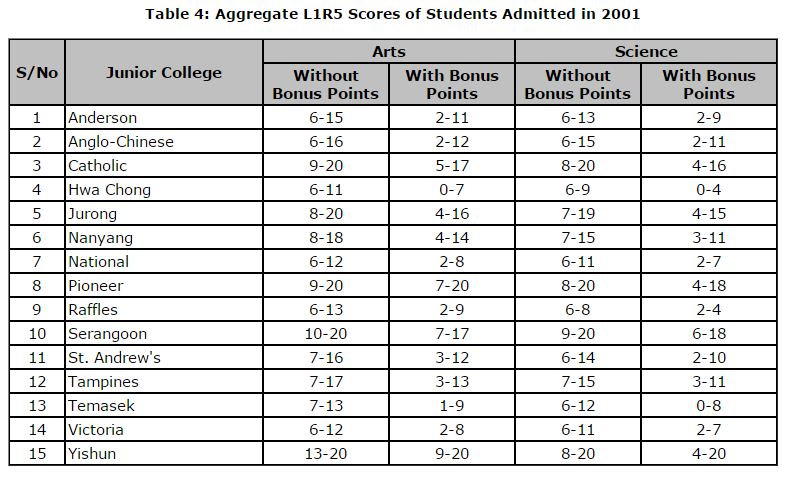I often come across comments online labelling Millennials as the “Strawberry Generation” or “Snowflakes”
Defined as young adults born between the 1982 to 2002, Millennials are often dismissed as “strawberries” who are unable to take hardships, narcissistic and deeply self-entitled.
I agree with DPM Tharman that ageism and discrimination against older workers is wrong but I do believe that our stance as a country against ageism should apply to the youth as well.
After all, no generation is superior to another and each generation has their own set of unique challenges. After some encouragement from my NTU Professor, Liew Kai Khiun, I decided to write this entry to debunk some myths about my generation.
Table of Contents
Criticism 1: “Young people these days are soft and have it easy”
I often hear older people lamenting about how youngsters are “can’t take hardships” and “have it easy in life”.
I definitely acknowledge that the older generation had their own set of challenges. However, it isn’t as easy for our generation too.
First of all, Gen Y had to face a tougher and much more competitive education system.
The criteria we needed to meet to get into top institutions were much higher. In 2001, a JC student only needs 8 points (after bonus) to enter Victoria JC. However, in my year 2008, the L1R5 to enter VJC (after bonus) was 4 points. With 8 points (after bonus) in 2008, you would probably even have to appeal to enter ACJC.
Besides having a higher entry score, we also had moderation of grades at every level from primary school to university.
This is worsened by the fact that there is increased competition from foreign students like PRCs and ASEAN scholars who are often older than us and the cream of the crop in their home countries.
When millennials enter the workforce, they often have to work harder to compete with more graduates for entry level jobs.
The proportion of university graduates in our society is increasing every single year. In 2020, the proportion of graduates in Singapore is expected to be 40 percent.
Besides having to compete with more local graduates, Generation Y also has to compete with foreign graduates who are sometimes often willing to accept a lower pay. If you look around you, you’d notice many fresh graduates who are foreigners working in Singapore. This was not the case during Generation X time where competition was mostly local.

Given these circumstances, perhaps to get your first job back then, all you need a university degree. However, for my generation, a degree isn’t enough.
To compete for good jobs in today’s context, you also need a few internships at reputable companies; international experience either through exchange or internships or both; awards or grants; community service and strong referrals from your professors.
I once shared my thought about how firms who asked for O level and A level results from fresh graduates was a backward practice.
Coming from a different era, it was no surprised that blogger, Mr Brown, didn’t understand the situation and asked:
“You are upset that the employer asks to see your O and A Level certs, you, the fresh grad? What do you want them to ask for? Your 40 years of work experience?”
During his time, I do agree that perhaps it was reasonable for employers to ask for A level and O level certificates in addition to your degree because they do not have much to assess you on.
However, it is backward for employers to continue this practice in this modern times.
The leading private sector firms care about internships; international exposure; awards; community service and co-curriculars like conferences; competitions etc. All these things matter much more than O level and A level certificates. This is the new benchmark and standard.
For this reason, young adults are sometimes so desperate for an internship that they would even do it for free for “learning experience”.
What I’ve described above is the new normal expected from candidates in our competitive landscape today.
I understand that perhaps Generation X also faced their own set of challenges. However, given all these factors above, I feel that it would be unfair to state that Generation Y has it easy or are unable to take hardships.

Criticism 2: “Young people these days don’t want to get married and settle down”
Some have blamed Millennials for not wanting to get married and start a family. Our birthrates have been consistently low for the past decade and more of us are getting married later in life.
However, this is largely attributed to our higher cost of living.
Even after going through a tougher education system and higher barriers to entry for their first jobs described above, young adults are faced with high cost of living and stagnating salaries.
Let’s do a simple comparison with the Class of 2008. Sure. We have a higher starting salary than you did. In 2008, a fresh graduate only earns a median salary of $2400. In 2015, the median starting salary is around $2800.
However, the cost of living has gone up much more than this minimal salary increase. Back in 2008, you can get a four- room premium flat in Punggol for $254,000. However, the prices for that type of flat now is around $350,000. That is a 37% increase in housing prices. And in 2008, COE was only $6200. Now, it is $56,000. That is an 8X increase.
Perhaps for this reason, some people from my generation have higher salary expectations. They are just trying to survive in a society where cost for basic necessities increases rapidly but wages stagnate.
Criticism 3: “The Strawberry Generation is so useless and lazy”

In her recent article, the Her World Plus Editor, Niki Bruce, had harsh words for our generation describing Gen Y interns for being “mostly useless” and how she “never gets an intern who’s entirely useful”.
Her sentiments are similar to some managers in Singapore who complain about how interns cannot perform as well as senior staff in the company.
An intern may not be as competent as your full-time staff. However, the thing is, isn’t the point of internship to learn new things? If one is of the same calibre as a full-time staff, then perhaps they won’t need to intern in the first place.
As Gordon Loh a manager at one of the top American global medical device MNCs rebutted Niki’s article:
“After all, they lack work experience and hence are at the company to pick some up right? If we as working adults and full-time colleagues cannot even help them by doing so, then why do we complain when someone else doesn’t? Moreover, by teaching these interns, do we not gain experience in management ourselves? Experience that prepares us for greater responsibilities.”
Furthermore, internship pay is usually only around $600 per month. In some companies, these poor slaves don’t even receive any pay at all.
I personally believe that “You get what you pay for”. If you want high performers who already know all the fundamentals, then why not hire a full-time entry level staff?
It sometimes surprises me when people expect to use students as cheap labour to cut cost and then complain about them not being as competent as an entry level executive.
It would be like buying a $10 bag from Pasar Malam then whining about how the quality isn’t good as a Prada bag.
Criticism 4: “The Strawberry Generation’s expectations at work are ridiculous”

Gen Y is often accused for being entitled because of our expectations at work. As Gen Y entered the workforce, they have begun to ask for more perks such as flexi-hours; mentorship and the opportunity to contribute to society through corporate social responsibility.
Rather than fearing authority, Gen Y often expects job interviewers to give basic respect by at least looking through our resume briefly, not come totally unprepared or make personal attacks during interviews. This is because unlike the generation before, Gen Y does not just want to work for money. They care about meaning, growth, autonomy and a good work culture where people at every level from the cleaner to the CEO is treated with respect.
However, having these expectations doesn’t mean that we are ‘entitled’. It is about progress in society and improvement of workers welfare.
Every generation would set the direction of what they would like to improve about the workplace. The generation in the early 1800s fought for the 40 hour week system which we use today in a time where working hour for employees range between 10-16 hours for six days a week.
Then, in the 1970s, the younger generation at that time (who are our 50 to 60 year olds today), expressed their desire to work in air conditioned offices. The pioneer generation started calling them “soft”. Then came my generation wants a job with meaning, balance, growth and autonomy.
Naturally as society progresses, our needs evolve and human beings would attempt to fulfill their higher order needs and seek improvements at work.
If the previous generations didn’t want better things, all of us will probably still only have 7 days of leave every year, no air con and no healthcare benefits at work.
Criticism 5: “Gen Y changes jobs every few years. Not like us, so loyal to the company and stay for 10 years”
Another criticism about Generation Y is that we always switching jobs every 2-3 years instead of staying 8-10 years like the previous generation. I’d try to help the older folks understand why we do so here.
My grandfather only worked two jobs in his life. One at a shipyard and the other was his retirement job at McDonalds.
The next generation followed in his footsteps. What did they get? After years of loyal service, my generation witnessed our parents, uncles and aunties being retrenched because of recession and replaced by cheaper foreign labour.
In return for their ‘loyalty’, some of them are driving taxis now, divorced and experienced unhappiness because of financial issues.
Having been brought up in such circumstances, my generation begins to question whether staying in one company for 10 years would pay off eventually.
Then we look at our peers and realize, those who jump ship are often rewarded financially but loyal employees are not. In fact, Employees Who Stay In Companies Longer Than Two Years Get Paid 50% Less.
You see, the average raise an employee can expect annually is usually 3-5 percent. However, taking into account inflation, the real increase is actually only about 1-2 percent. In contrast, when people switch jobs, they often get a 10-20 percent increase in salary. That is like working for 6-7 years in the same company.
As Bethany Devine, a Senior Hiring Manager in Silicon Valley, explains:
“I would often see resumes that only had a few years at each company. I found that the people who had switched companies usually commanded a higher salary. The problem with staying at a company forever is you start with a base salary and usually annual raises are based on a percentage of your current salary. There is often a limit to how high your manager can bump you up since it’s based on a percentage of your current salary. However, if you move to another company, you start fresh and can usually command a higher base salary to hire you.”
I guess it is also because people who want to get ahead in their careers also recognize a dead end opportunity when they’re in it, cut their losses and find another job.
My reader Tee Kian Hin has another way of perceiving this: “The term strawberry generation is only backed by self-interested managers complaining about youngsters being picky about jobs. However, the employment figures suggest otherwise. It’s a free market after all. If your contract terms and working conditions are inferior, of course people will look elsewhere.”

I understand that a single blog post may not change one’s perspective entirely. However, it is my hope that this entry would broaden the older generation’s view points about Millennials.
There are also many positive aspects about this so-called “Strawberry generation” for being hardworking and eager to contribute to their community.
If the older adults do not like it when they are discriminated in the workplace because of their age, I hope that they would not do the same for our generation too. Ultimately, I feel that ageism, whether it is against the young or old, doesn’t help our society to progress or to create a better world.
Looking to find your first job or land a better paying one? Stand out in this competitive job market by following best practices for CV/resume, with the canva resume maker tool.


















